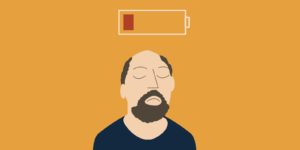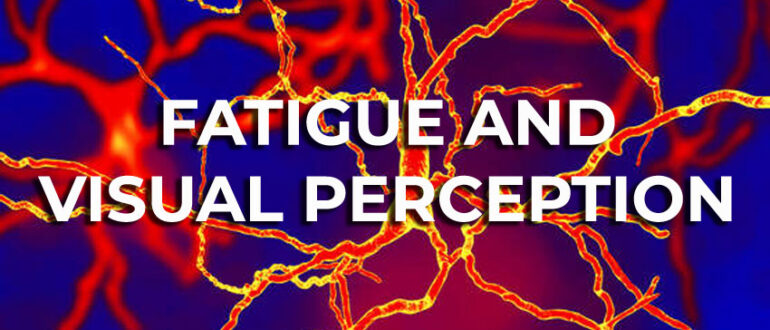 Tiredness is something we all experience in our everyday lives. But how about the sort of tiredness which seems to be unrelated to physical or mental exertion, and does not seem to be alleviated by rest? This is a real problem for many stroke survivors on top of the many other problems they may face – and is called ‘fatigue’.
Tiredness is something we all experience in our everyday lives. But how about the sort of tiredness which seems to be unrelated to physical or mental exertion, and does not seem to be alleviated by rest? This is a real problem for many stroke survivors on top of the many other problems they may face – and is called ‘fatigue’.
Fatigue is one of the most commonly reported symptoms after Stroke with a prevalence of up to 80%, characterised by overwhelming physical and/or mental tiredness or exhaustion.
For many the symptoms dissipate and lessen over time. Others continue to experience these symptoms at a high level many years after their stroke. This is called chronic fatigue.
Chronic Fatigue has a major impact on Quality of an individual’s life, making everyday tasks feel overwhelming and unachievable, or just plain exhausting. Despite the high prevalence, what causes fatigue to persist for months or years after a stroke remains an open question.
Researchers continue to try and get a better understanding of the mechanisms that underlie fatigue in order to answer this question. Understanding more about it may in turn can maybe lead to the development of effective interventions which may significantly alleviate the condition.
 The Effort Lab, led by Dr Anna Kuppuswamy, based at the Institute of Neurology, UCL, in London, has been studying fatigue over the last 10 years to better understand the brain mechanisms that underlie this highly debilitating symptom, not only after Stroke but across other neurological conditions such as Multiple Sclerosis and Parkinson’s Disease.
The Effort Lab, led by Dr Anna Kuppuswamy, based at the Institute of Neurology, UCL, in London, has been studying fatigue over the last 10 years to better understand the brain mechanisms that underlie this highly debilitating symptom, not only after Stroke but across other neurological conditions such as Multiple Sclerosis and Parkinson’s Disease.
Their work suggests that altered perception of various sensations can explain the onset and persistence of fatigue.
When performing day to day tasks for example, altered perception will make the tasks feel more effortful. And when in a busy environment with background noise, altered perception results in being overwhelmed and brings on fatigue.
What remains unclear is the relationship between fatigue and visual perception.
They have designed a way that stroke survivors can feedback their experiences to the research team in order to gather important information from various neurological conditions so that they can better understand the possible links.
CALLING ALL STROKE SURVIVORS – PLEASE HELP BY GETTING INVOLVED IN THIS IMPORTANT STUDY IF IT IS APPROPRIATE TO YOUR SITUATION!
 It takes no more than 45 minutes on an online combined quiz and questionnaire:
It takes no more than 45 minutes on an online combined quiz and questionnaire:
online quiz: completing a couple of questionnaires
online task: identifying shapes and responding by pressing the appropriate buttons on your keyboard.
A tip: For best display of the questionnaire graphics, use a laptop/desktop computer or tablet…
For more information, please read the participant information sheet and if you are interested in taking part please go to the study website.
If you have any questions please contact Dr William De Doncker (William.doncker.11@ucl.ac.uk) or have a look at the Effort Lab’s website: The Effort Lab | Ensnared



